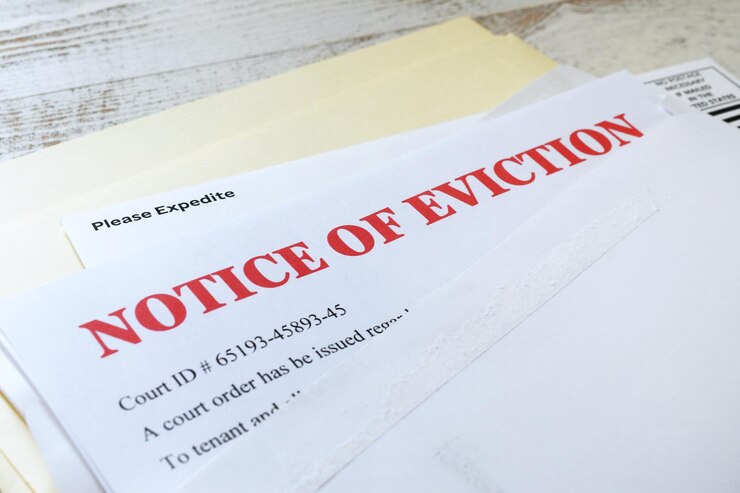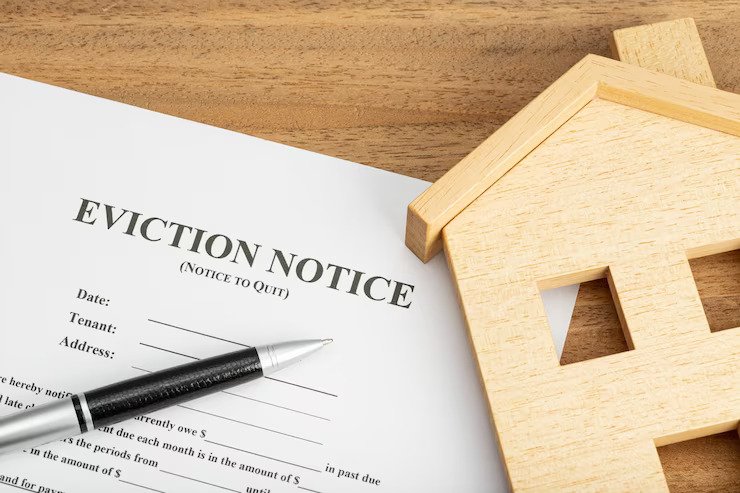Bus Accident Attorneys: Essential Tips for Victim Representation
As bus accident attorneys, we have undergone a series of bitter experiences with the victims that are quite horrifying. After....
1933 Views

So, you are wondering about Wrongful Eviction? Vacancies can be a real thorn to property owners, and while empty units make no money, keeping on issues can be more expensive.
In some systems, eviction is cheaper and more sensible, especially after mediation and conflict solution fail. As a landlord, understanding the rights and duties of property right is crucial.
One of the most important aspects of being a responsible landlord is knowing the legal rules enveloping your tenancy and what actions you can take when there’s a breached agreement. Deviating from your state’s acceptable code of conduct could have serious legal consequences, financial liabilities, and damage to your reputation.
This comprehensive guide will delve into wrongful eviction, digging into what it entails and essential guidelines for landlords to navigate this complex issue. By knowing the laws and rules, you can ensure that you operate within the boundaries of the law while protecting your interests.
Wrongful eviction refers to the illegal removal of a tenant from a rental property by a landlord or property owner. It occurs when a landlord defiles the legal rights by evicting them without proper legal reason or following the correct eviction process.
It is essential to understand your rights as a landlord and discuss better ways to evict a tenant. For example, even when the tenant is at fault, they still have rights. In other words, legally removing a defaulting renter from your building, you need to follow due process to avoid backlash or financial consequences.
Wrongful eviction doesn’t necessarily mean turning the tenant out of your building. It can take various forms, such as physically removing the tenant’s belongings, changing locks, shutting off utilities, or scaring the tenant to vacate the premises. Besides pursuing proper procedure, it’s also crucial to consider your reason for eviction.
Evicting a tenant as retaliation for asserting their rights or based on discriminatory reasons could land you in trouble. These actions are morally and ethically wrong and can lead to severe legal penalties, potential lawsuits, and damage to their reputation.

Default in rent payment is one of the most common reasons property owners evict tenants. Therefore, every lease should include details about how much, when, and how tenants can pay their rent. Landlords can seek eviction if they consistently fail to meet their financial obligations outlined in the agreement.
Engaging in illegal activities on the rental property is a valid reason for eviction. Whether it’s drug-related offenses, running an unlawful business, or conducting illegal gambling, landlords have the right to terminate the tenancy to maintain a safe and lawful environment for all residents.
Still, including this clause in your rental agreement is vital to tie up loose ends. First, you should note that you can’t evict tenants for illegal activity based on your intuition alone. You need solid proof to back your case, and you need it to obtain it legally. In other words, you can’t snoop through their apartment without prior notice simply because you have a feeling.
Landlords can evict tenants if they create health or safety hazards. Such behavior includes hoarding, improper disposal of waste, or failing to address structural issues that compromise the integrity of the property. In addition, renters unable to maintain a reasonable level of cleanliness are a liability as their habits can attract pests, creating another problem for the property owner.
If a tenant subleases the property without consent, it can be grounds for eviction. Unauthorized subletting can lead to issues of responsibility, control, and potential breaches of the lease agreement.
To safeguard your property, it’s obvious to add a clause that outlines the rules of subletting. Is it a complete violation, or are there exceptions? Are there limitations on extended guest visits? Clarifying these points can minimize the breach of contract and avoid a messy eviction.
When a tenant causes intentional or extensive damage to the rental property, it can be a valid reason for eviction. As a result, landlords can protect their investment and ensure the property remains habitable for future tenants. However, this reason doesn’t include normal wear and tear.
Welcome to the riveting world of landlord-tenant relationships, where the plot thickens with the possibility of a wrongful eviction. Picture this as a legal soap opera, complete with twists, turns, and a dash of courtroom drama. So, what exactly qualifies as a wrongful eviction? Let’s break it down in a language that makes the legal intricacies more digestible.
Starting with the basics, it’s important to keep in mind that signing a lease agreement means entering into a partnership with your landlord. Beyond just receiving keys to a space, you’re agreeing to uphold legal obligations with mutual respect and consideration.
The lease agreement serves as the foundation of this partnership, outlining the terms and conditions that both parties must adhere to. It’s essential to honor this sacred document and treat it with the utmost importance. Wrongful eviction would be a breach of this sacred agreement, and it’s crucial to address any issues with proper cause and respect for each other’s rights.
At the heart of a wrongful eviction is the absence of a valid legal reason. Imagine being evicted because your landlord didn’t like your taste in music – that’s a wrongful eviction script unfolding. Legitimate reasons for eviction include non-payment of rent, violating lease terms, or the landlord needing the property for personal use. If the reason doesn’t pass the legal sniff test, we’re in wrongful eviction territory.
Landlords cannot take matters into their own hands. Picture this: you come home, and your stuff is on the curb. If your landlord acted as judge, jury, and executioner without going through the proper legal channels – congratulations, you’ve got yourself a wrongful eviction plot twist.
In the legal tango of eviction, documentation is your secret weapon. If your landlord tries to kick you to the curb without proper notice or justification, having a paper trail can be your superhero cape. Emails, texts, and that sacred lease agreement – they’re your defense squad.
Knowing your rights is like having a superhero guidebook. Laws vary by location, but most places provide tenants with certain rights and protections. These can include the right to proper notice, the right to a habitable living space, and the right to contest an eviction. Ignorance of your rights is the villain in this tale.
We hope we’ve been able to guide you through what to avoid. With this knowledge, you should understand the importance of acting within the bounds of the law.
Doing so will help you maintain a positive relationship with your tenants and avoid when eviction is necessary. Remember, valid reasons to initiate an eviction include tenants, doing illegal activity, health hazards, or being bad.
If you want to be on the safe side, don’t shy away from seeking professional advice when needed.
Read Also:

As bus accident attorneys, we have undergone a series of bitter experiences with the victims that are quite horrifying. After....

It’s important to keep a steady and ironclad relationship with your suppliers. It helps you to reach your business in....
By LawyersNote
08 May 2024
One of the significant challenges in the legal field is the matter that requires proving legal malpractice. Proving a legal....
By LawyersNote
08 May 2024